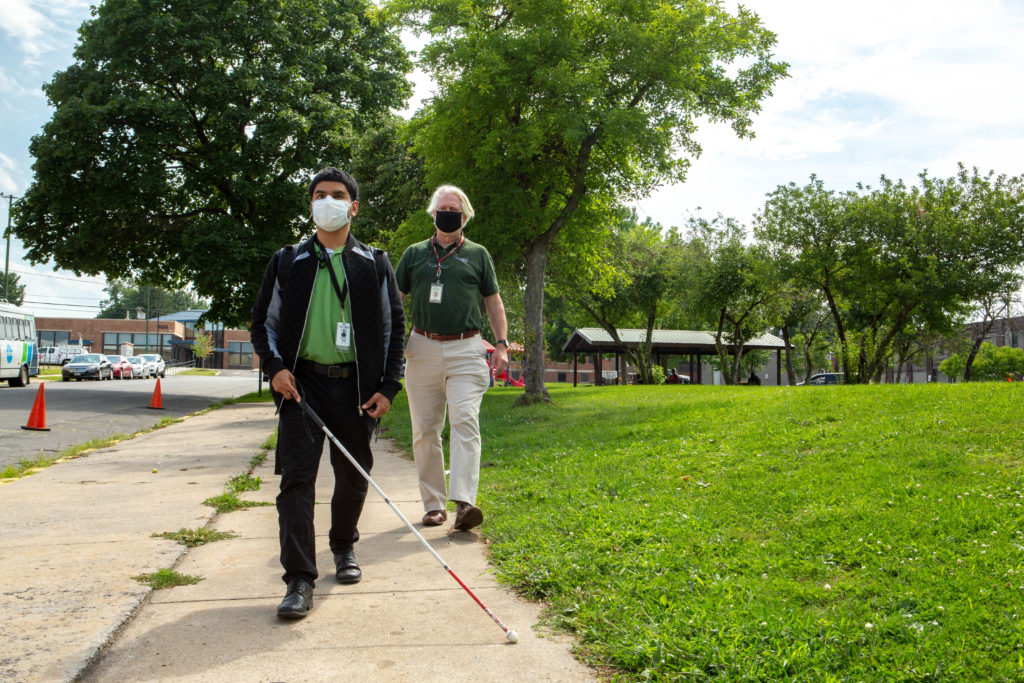Submitted by Mitchel Hansen, Certified Orientation & Mobility Specialist
All travelers need to know where they are and where they are going. This is
called “orientation.” Everyone routinely uses one or more basic methods to
set up and define relationships between themselves and the objects or space
around them, in order to keep track of their position and path. In mobility
sessions, we call these methods spatial reference systems, or frames of
reference. They help us create mental maps that can be quite useful when
we move through an area, discuss locations, and when we seek travel
assistance. In this article, we will discuss frames of reference.
The most fundamental of these is an egocentric or self-centered frame of
reference, focused on the person doing the activity. This would be yourself.
In this egocentric frame, objects are defined by their position relative to your
current location, from your point of view. You would say, for example,
“the chair is in front of me; the door is to my left; the sky is above me; you
are walking toward me,” or “the lamp is to the left of the sofa, from my
perspective.” Many blind travelers rely greatly on this way of thinking. It
helps find things and walk safely and accurately toward familiar destinations.
However, with a self-centered reference system, you need to revise your
mental map every time you move or turn. If you forget to do this, it can
cause a problem. For example, you put your keys down on a table to your
right and then walk forward a few steps, and have not updated your mental
map, you might be surprised to discover that not only are your keys not
there, but now the table itself is also gone.
Another problem with the ego-centric perspective occurs when discussing
locations and space with another person. An object on your left side can be
on another person’s right side, when that person is facing you. Every blind
traveler can tell a story about how they changed their direction based on
instructions given to them by another person, only to bump into the very
same object that person was trying to warn them of. The humorous
apology is always “I’m sorry, I meant my other left side.” It’s all a matter of
perspective, but it is an important matter for a blind traveler. When
necessary, a blind traveler should remember to clarify those directions by
asking, for example, “Do you mean over to my right or my left?” And if you
are assisting a blind traveler, remember to give instructions and
directions from their point of view.

